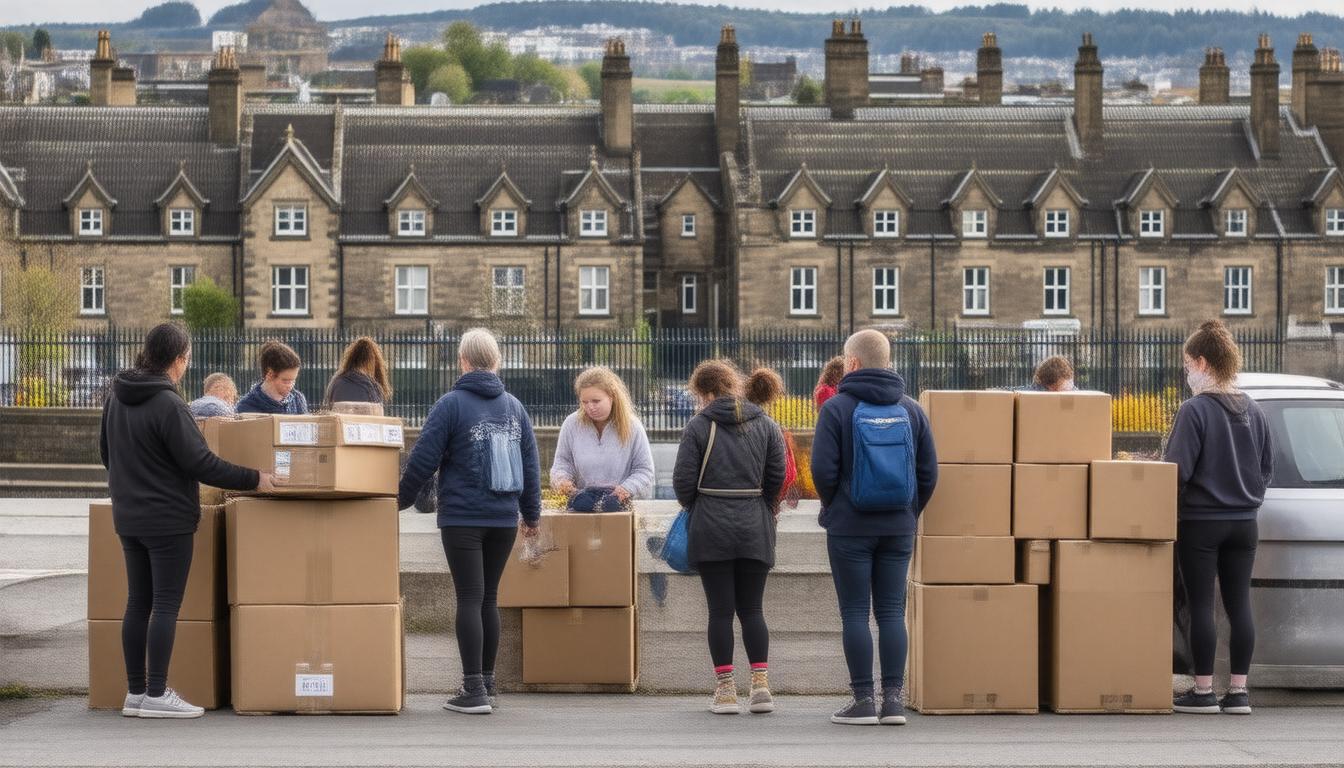The City of Edinburgh Council has commenced an urgent initiative to relocate homeless families residing in unlicensed temporary accommodations, such as hotels and bed-and-breakfasts, ahead of a compliance deadline by the end of November. This move is a response to a surge in demand for temporary housing, which initially arose as a consequence of the Covid-19 pandemic. Over 700 households currently inhabit 28 properties that do not adhere to the licensing regulations mandated for Houses in Multiple Occupation (HMO). In light of legal counsel suggesting potential violations of health and safety standards by subsidising these operators, the council has decided to suspend new social housing applications and non-urgent repairs. The focus now shifts to ensuring all individuals are transitioned to compliant housing by December, as the municipality grapples with an increasing homelessness crisis, with temporary accommodation numbers reportedly rising from around 3,570 in 2020 to over 5,000.
Key Takeaways
- Edinburgh Council plans to relocate over 700 homeless families from unlicensed accommodations by the end of November.
- The rise in homelessness prompted by the Covid-19 pandemic has led to urgent action to ensure proper housing compliance.
- The council will prioritize relocating individuals to licensed properties by suspending new social housing applications and non-urgent repairs.
Background of Homelessness in Edinburgh
The City of Edinburgh Council has announced a pivotal plan to relocate hundreds of homeless individuals currently residing in unlicensed temporary accommodations, specifically targeting hotels and bed-and-breakfast establishments, by the end of November
2024. This initiative is a response to a surge in demand for temporary housing that escalated following the Covid-19 pandemic, prompting the council to utilize these facilities as emergency support measures to safeguard public health (Edinburgh City Council, 2024). At present, over 700 households are living in 28 properties that do not comply with licensing regulations necessary for Houses in Multiple Occupancy (HMO). In light of recent legal counsel suggesting that the council may be infringing upon health and safety laws by financing non-compliant housing operators, councillors have made the strategic decision to suspend new social housing applications and non-urgent repairs. This prioritization aims to transition these vulnerable individuals into licensed accommodations quickly. Furthermore, the number of households in temporary accommodation has seen a troubling increase, rising from around 3,570 in 2020 to over 5,000 recently. To address this crisis, the council will pause new housing allocations until January 2025, with some exceptions, while emphasizing the need to prepare vacant properties for occupancy (Scottish Government, 2024). Previous inspections revealed significant non-compliance issues, as many landlords have either failed to register for an HMO license or neglected essential safety recommendations. To rectify this situation, the council endeavors to ensure all individuals currently in unlicensed HMOs are successfully moved to appropriate and legal housing solutions before December
2024.
Council’s Strategy for Relocation and Compliance
The council’s commitment to resolving the homelessness crisis extends beyond relocation, as they are also focusing on improving long-term housing solutions. Initiatives aimed at increasing the supply of socially funded housing are underway, which includes investing in new build projects and collaborative partnerships with private housing developers (Scottish Housing Regulator, 2024). To further enhance the situation, the council is engaging with local communities and support organizations to provide the necessary resources and assistance for affected households during this period of transition. By fostering a collaborative environment, the council aims to ensure that individuals not only move into compliant accommodations but also gain access to support services that can facilitate their journey towards stability and reintegration into the community. The urgency of this comprehensive strategy reflects a broader understanding that mere relocation is insufficient; sustained support and access to reliable housing options are critical in breaking the cycle of homelessness.





